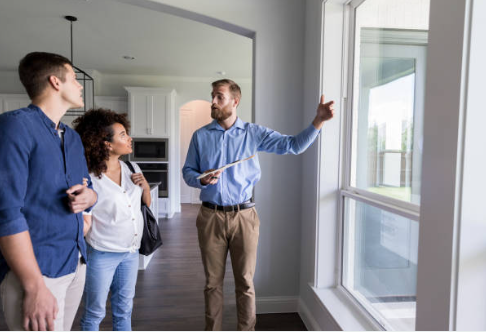Buying a Foreclosed Home: 5 Key Pros and Cons Every Buyer Should Know
Buying a Foreclosed Home: 5 Key Pros and Cons Every Buyer Should Know
Discover the pros and cons of buying a foreclosed home. Learn key tips, risks, and how to make a smart investment decision.
If you're considering a foreclosed home, special financing options like FHA 203(k) a State Renovation loan which can help cover both the purchase price and necessary repairs—making it easier to turn a distressed property into a livable or investment-worthy home.
✅ Pros of Buying a Foreclosed Home
Buying a foreclosed home can be a smart financial move, but it also comes with risks.
Lower Purchase Price
Foreclosed homes are often priced below market value because lenders want to sell quickly and recover their losses.
Potential for Equity Growth
If you buy low and renovate wisely, you could build equity fast—either for resale or long-term value.
Less Competition (Sometimes)
In some markets, fewer buyers are willing to deal with the risks of foreclosures, giving you an advantage.
Investment Opportunity
Great for flippers or rental property investors who can handle renovations and manage properties.
Motivated Sellers
Banks and lenders are usually motivated to offload the property quickly, which can sometimes give you negotiating power.
A Bankrate survey shows that 45% of U.S. homeowners have at least one regret about their home purchase. Common issues include unexpected maintenance, hidden costs, and affordability concerns
Data from New York Post/ Black Enterprise
That same survey also found a silver lining—55% of homeowners reported no regrets and 70% said they would buy their current home again, indicating general satisfaction
Data from New York Post/ Probuilder.com
Another view from Motley Fool Money indicates that about 25% of homeowners have regrets, with the proportion being higher earlier in the ownership timeline (up to 52% for those in their first 1–2 years of ownership)
Data from The Motley Fool
❌ Cons of Buying a Foreclosed Home
Foreclosed homes often come with extra variables—greater risk of hidden damage, fewer negotiation opportunities, and greater reliance on inspections. These factors may influence both regret and satisfaction levels differently compared to standard home purchases.
"As-Is" Condition
Foreclosures are usually sold as-is, which means the seller (usually a bank) won’t make repairs. Homes may have been neglected or even intentionally damaged.
Hidden Costs
You might face unexpected costs such as: Major repairs (roof, plumbing, electrical), Back taxes or liens on the property, and even Eviction of current occupants.
Complicated Purchase Process
Buying a foreclosure can involve more paperwork and delays, especially if it's an auction or bank-owned (REO) sale.
Limited Inspection Access
In some cases (especially auctions), you may not be allowed to inspect the home before purchase.
Financing Difficulties
Homes in poor condition might not qualify for traditional loans. You may need to use cash or special rehab loans (like an FHA 203(k)).
🏡 Foreclosed Homes: Loan Info for First-Time Buyers
First-time homebuyers can take advantage of special loan programs like the FHA 203(k), which helps finance both the purchase and renovation of a foreclosed home—making it easier to afford repairs and turn a fixer-upper into a dream home.
- 💰 Financing Options to Consider:
- FHA 203(k) Loan
- Best for: First-time buyers who need to finance repairs.
- Covers: Purchase + renovation costs.
- Low down payment: As low as 3.5%.
- Note: Requires licensed contractors and approval of repair plans.
- Other options to consider are Conventional Loans, USDA or VA Loans, Fannie Mae HomeStyle® Renovation Loan and State & Local First-Time Buyer Programs.
💡 Tips if You're Considering a Foreclosure:
- Get a home inspection (when possible)
- Work with a real estate agent who specializes in foreclosures
- Check for liens or unpaid taxes before buying
- Budget for repairs and renovations
- Get pre-approved for financing, especially if it's a competitive market
Need a service for your home?
Buy your next home services online!

